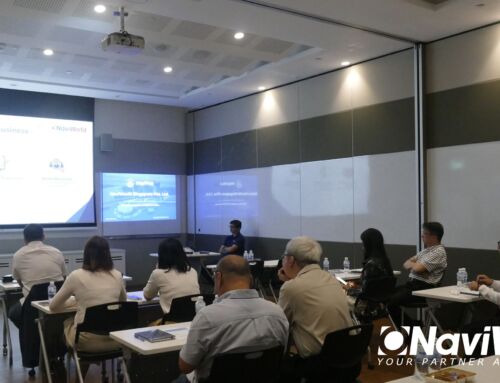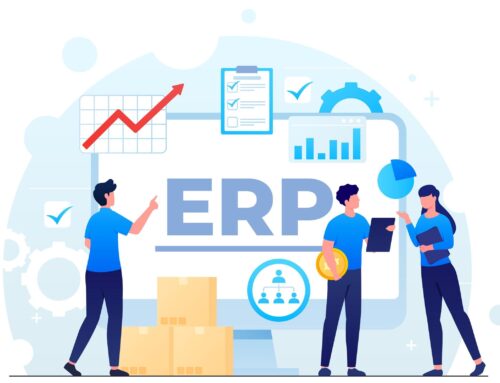Why ERP is More Important than Ever
Emerging of New Technology Adoption
Industrial 4.0 and IoT
The Fourth Industrial Revolution (or Industry 4.0) is the automation of traditional manufacturing and industrial practices. It is the use of modern smart technology such as large-scale machine-to-machine communication (M2M) and the internet of things (IoT). These technologies are integrated for increased automation, improved communication, and self-monitoring. It uses smart machines that can analyze and diagnose issues without the need for human intervention.
Big Data Analytics
Big data applications are applied in various fields like banking, agriculture, chemistry, data mining, cloud computing, finance, marketing, stocks, healthcare, etc.
- Retail – Optimize staffing through data from shopping patterns, local events, etc
- Distribution – Route planning to save on fuel and time.
- Manufacturing – Quality of the product, Supply scheduling, Tracking defect in the Manufacturing process, Predicting output, Expanding Energy Efficiency, Testing of new manufacturing processes, developing a new manufacturing process.
Artificial Intelligence
Artificial intelligence (AI), or machine intelligence, is intelligence demonstrated by machines. Leading AI textbooks define the field as the study of “intelligent agents”: any device that perceives its environment and takes actions that maximize its chance of successfully achieving its goals.
High-profile examples of AI include:
- Autonomous vehicles (such as drones and self-driving cars)
- Medical diagnosis
- Creating art (such as poetry)
- Proving mathematical theorems
- Playing games (such as Chess or Go)
- Search engines (such as Google search)
- Online assistants (such as Siri)
- Image recognition in photographs
- Spam filtering
- Predicting flight delays
- Prediction of judicial decisions
- Targeting online advertisements
Some of the typical AI usage, together with Enterprise Resource Planning (ERP) are:
- Cash flow forecast
- Sales forecast and inventory planning
- Create a recommendation of additional purchase to a customer when they are making payment at the Point-of-Sales (POS) and placing an order.
The New Normal after COVID-19
The COVID-19 pandemics in 2020 brought about a rapid change of work processes. Due to social distancing, people have become the weakest link in the business processes. The epidemic has since created the need for changes in working procedures and consumer behaviour.
Remote Working
Adoption of Cloud Solutions
The employee has to access to company system remotely, and there is an urgent need to deploy the solution rapidly. These needs accelerated the adoption of cloud solutions, such as cloud ERP.
Rapid Adoption of E-Commerce
Digitization Initiative
E-Payment
The need for E-Payment is the result of E-Commerce transactions and the need for non-cash/contactless transactions.
PEPPOL
IMDA implemented the nationwide E-invoicing network, InvoiceNow (PEPPOL e-invoicing), to help businesses improve efficiency, reduce cost, enjoy faster payment, and stay green at the same time. This network is an extension of the International Peppol E-Delivery Network, allowing businesses to transact internationally with other linked companies.
The Important of Enterprise Resource Planning (ERP)
Integration
Depository of Data
ERP is a nature depository of data of your company’s operations and business. ERP keeps all your business transactions in one single database. It serves as part of the big data for analytics and AI.
Companies can use ERP to execute the recommendations and instructions generated by AI and Analytics.
Buyer Beware
After understanding why ERP is more important than ever, you may be thinking of two questions:
- How to Select the Right ERP, if you currently do not have an ERP
- How to Implement ERP to achieve the benefits
So, what does a company need to beware of in embarking on such a project?
- The company must ensure that its selected ERP can be accessed remotely. The selected ERP can be either a Cloud ERP solution or enable through IT infrastructure for remote access.
- Integration between systems can be complicated. A poorly implemented integration will lead to long term problems. Avoid integration through the export and import of files. The recommended methods for integration between systems are either through API or Web Services. Check that your selected ERP can handle these modern methods of integration. If your vendor proposes using the file import and export method, you should be cautious. It is often an indication of the lack of technical experience.
Conclusion
Most of the companies are probably in a crisis. But in a crisis, there are also opportunities.
Please take advantage of the various government support and adopt new technologies when they are relevant.
With proper planning and execution, companies will emerge stronger.
If you like to discuss further and understand more about ERP implementation, please do not hesitate to contact us.




